How to Make Combo Charts in Excel
In Excel, a combo chart uses two different chart types in one chart. They are used to display two different data sets about the same subject matter.
The data sets frequently vary widely in scale and sometimes even affect each other. There is a combo chart template in the charts gallery for new charts. Existing charts can be modified by using the change type command found on the Chart Design tab of the ribbon.
This tutorial will show you how to make and edit a Combo Chart in Excel
How to Build a Combo Chart in Excel
Step 1: Select the data you want displayed in the Combo chart
Use your mouse to select the data you want included. Excel will use the left most column for the largest groups or branches. The data may need to be reorganized to take advantage of this chart type.
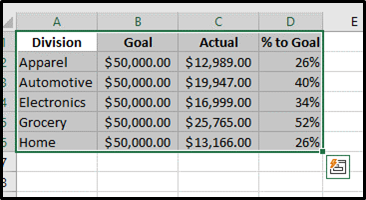
Step 2: Click the Insert Tab, and then Click the Statistic Chart button.
After selecting the data for the chart, click on the Insert tab and select Combo choice from the charts group.
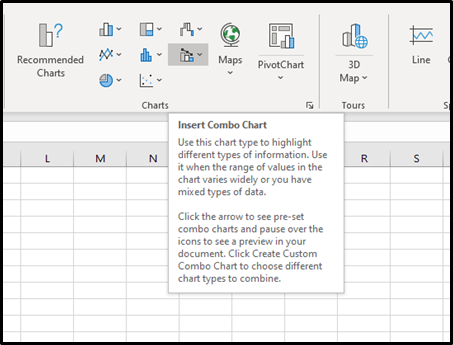
Step 3: Select Combo chart type.
When the Combo chart type sub menu appears notice the three types and a custom chart option. Clustered Column - Line best for when displaying mixed data types. Clustered Column – Line on Secondary Axis use when the size of the data ranges varies greatly. Stacked Area – Clustered Column used to highlight different types of information. The Create Custom Combo chart provides maximum control over the appearance of the combo chart.
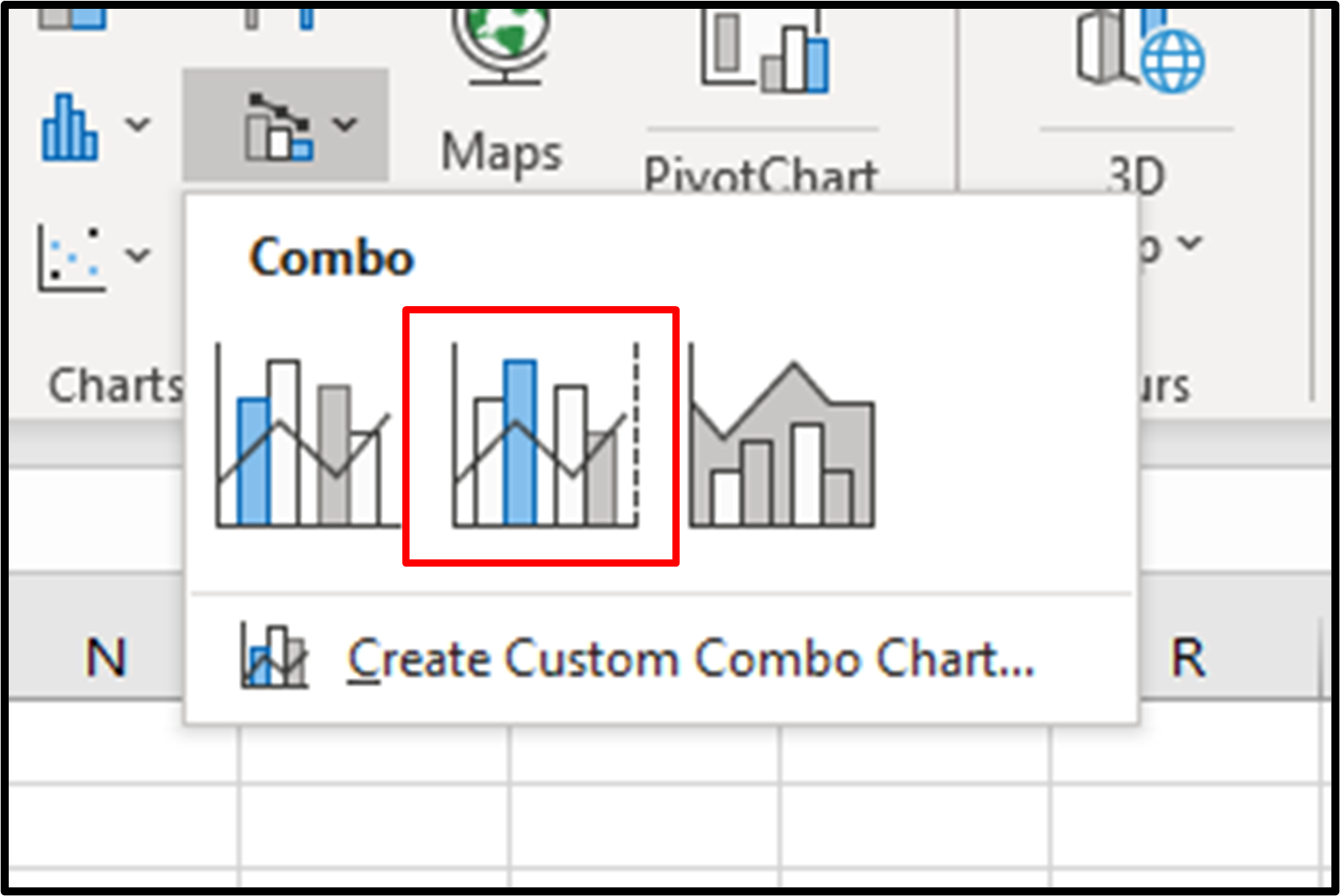
Result: Your Combo Chart will appear on your worksheet
You will now see your area chart appear in your worksheet. Now you can start adding chart elements and formatting to your chart. Continue reading for more details on adding chart elements and chart formatting.
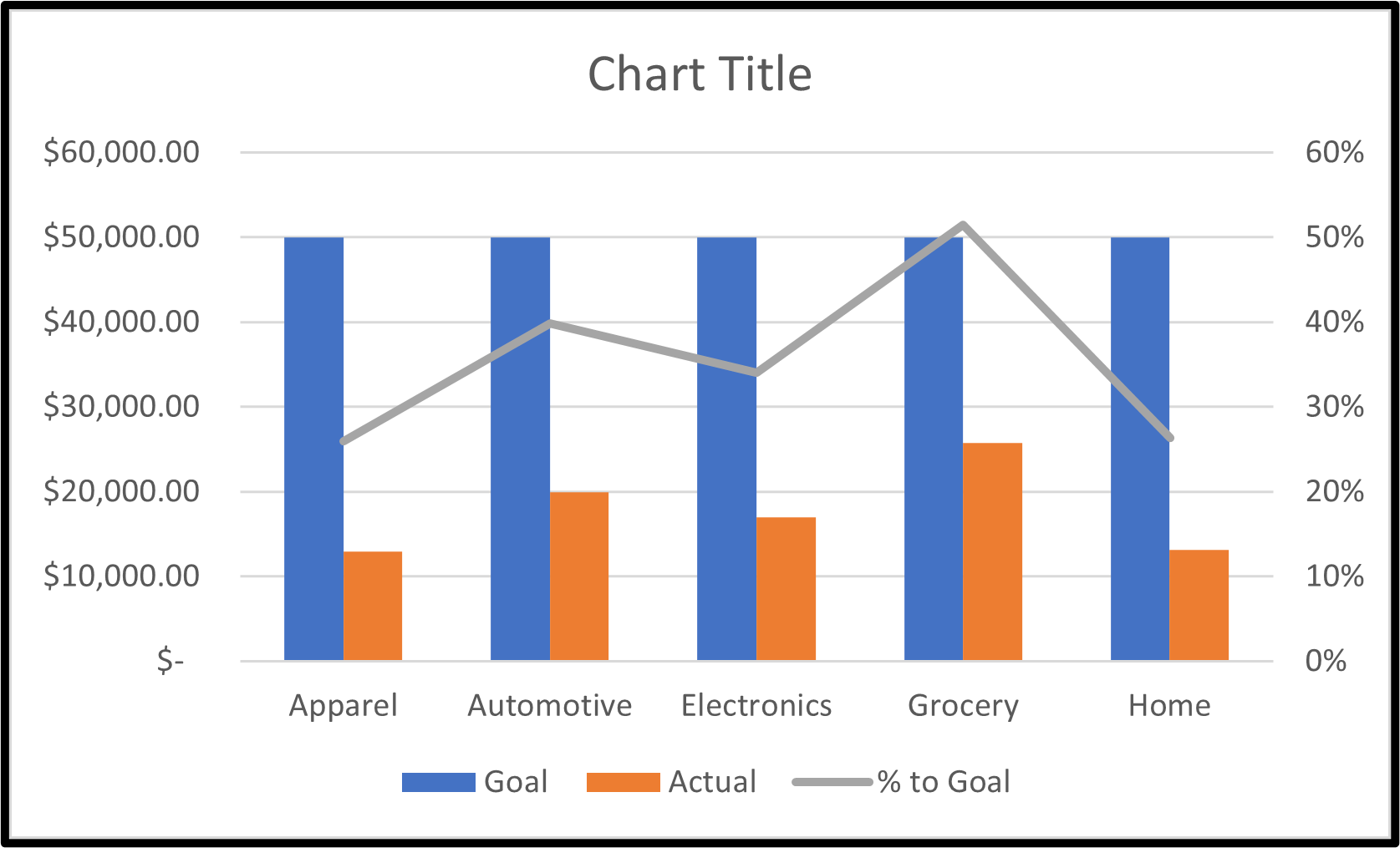
How to Add Chart Elements to a Combo chart in Excel
Step 1: Click on a blank area of the chart.
Use the cursor to click on a blank area on your chart. Make sure to click on a blank area in the chart. The border around the entire chart will become highlighted. Once you see the border appear around the chart, then you know the chart editing features are enabled.
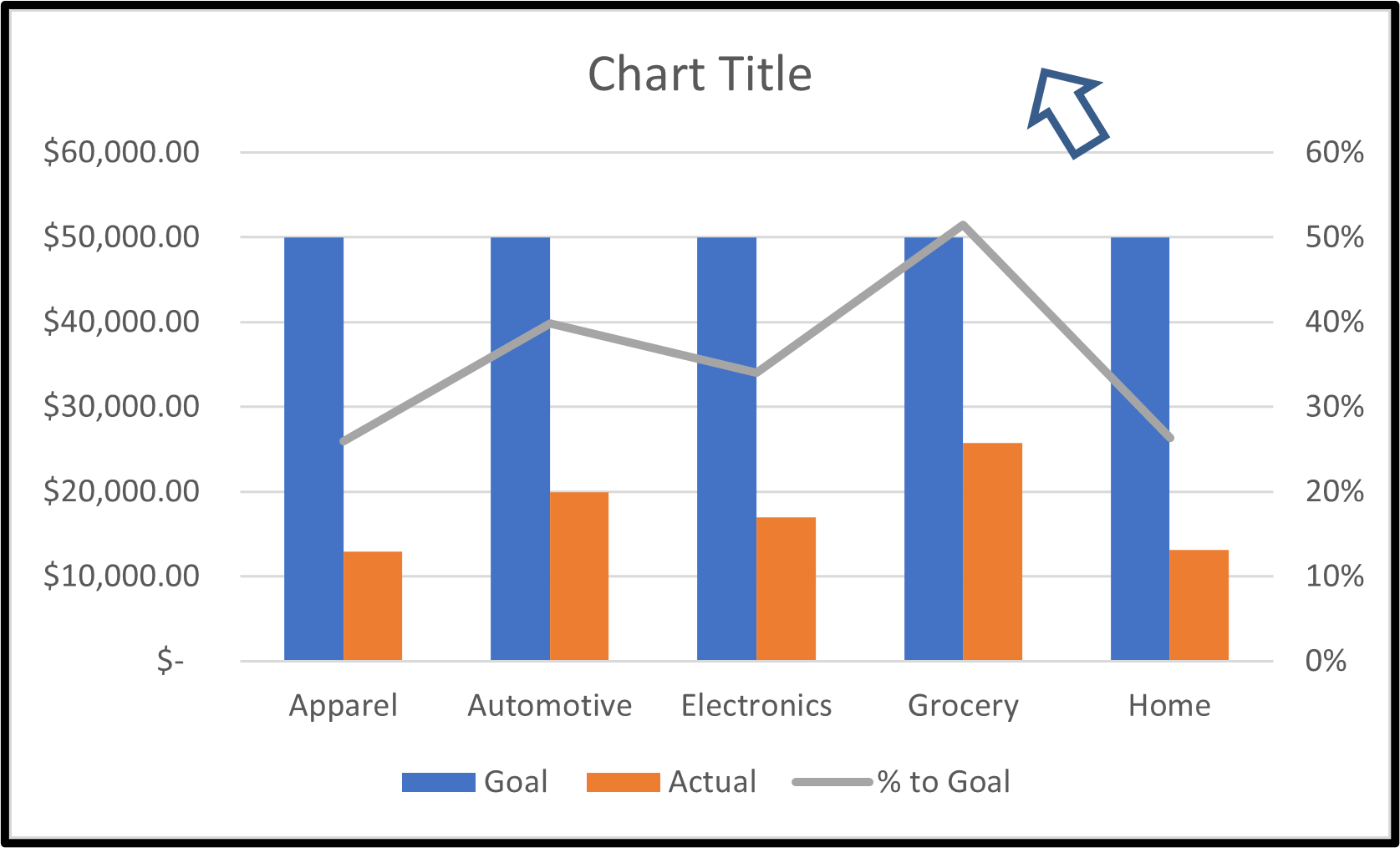
Step 2: Click on the Chart Elements button next to the chart
Once the chart name area is highlighted, you will see the Chart Elements button next to upper right hand side of the chart. The button looks like a plus sign. Doing this will open the Chart Elements window.
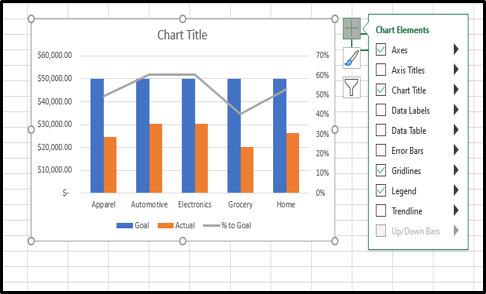
Step 3: Check the Chart Elements you would like to add from the Chart Elements window
Once you have opened the Chart Elements window, you will see a number of items you can select to add to your chart. Check the Chart Elements you would like to display and they will appear on your chart. You can click on the arrow next to each Chart Element option for some additional formatting options.
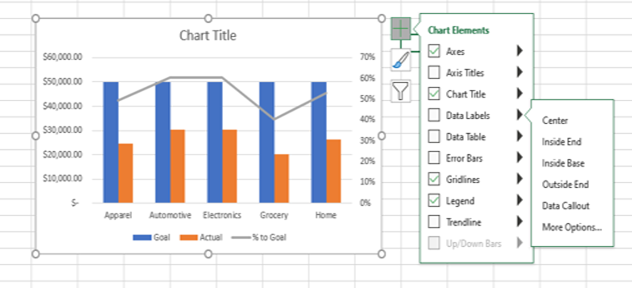
Here are the available chart elements for a Combo Chart:
- Axis
- Axis Title
- Chart Title
- Data Labels
- Data Tables
- Error Bars
- Gridlines
- Legend
- Trendline
Each of these chart elements can be formatted in a variety of ways. Please see our other tutorials on how to add and format each chart element.
How to Format a Combo chart in Excel
Step 1: Right-Click on a blank area of the chart
Use the mouse to right-click on a blank area on your chart. On the menu that appears select the Format Chart Area option.
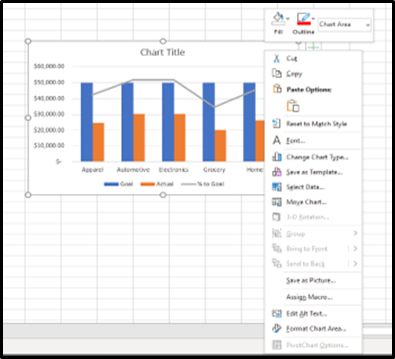
Step 2: Select the Format Chart Area option
On the menu that appears select the Format Chart Area option. Doing this will open the Format Chart Area panel on the right side of the workbook.
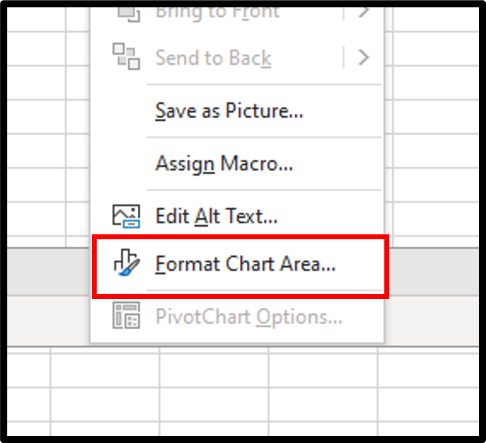
Step 3: Use the Format Chart Area panel to make changes to the appearance of your chart
Once you have opened the Format Chart Area panel, you will see a number of items you can modify on your chart. Use these features to create a custom look for your Combo chart.
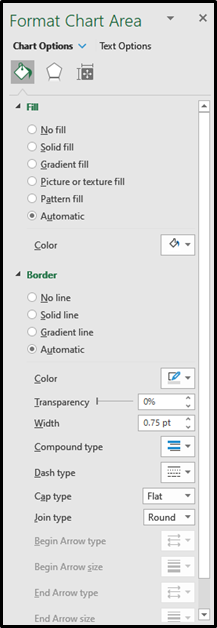
Here are the available chart elements for a Combo Chart:
- Fill
- Border
- Shadow
- Reflection
- Glow
- Soft Edges
- 3-D Format
- Size
- Properties
Please note: You can also right click on any of your chart elements and open a separate formatting panel for that particular item. The Format Chart Area panel will be the one you want to use when formatting the main structure of the chart.
How to Filter a Combo Chart in Excel
Step 1: Click on a blank area of the chart.
Use the cursor to click on a blank area on your chart. Make sure to click on a blank area in the chart. The border around the entire chart will become highlighted. Once you see the border appear around the chart, then you know the chart editing features are enabled.
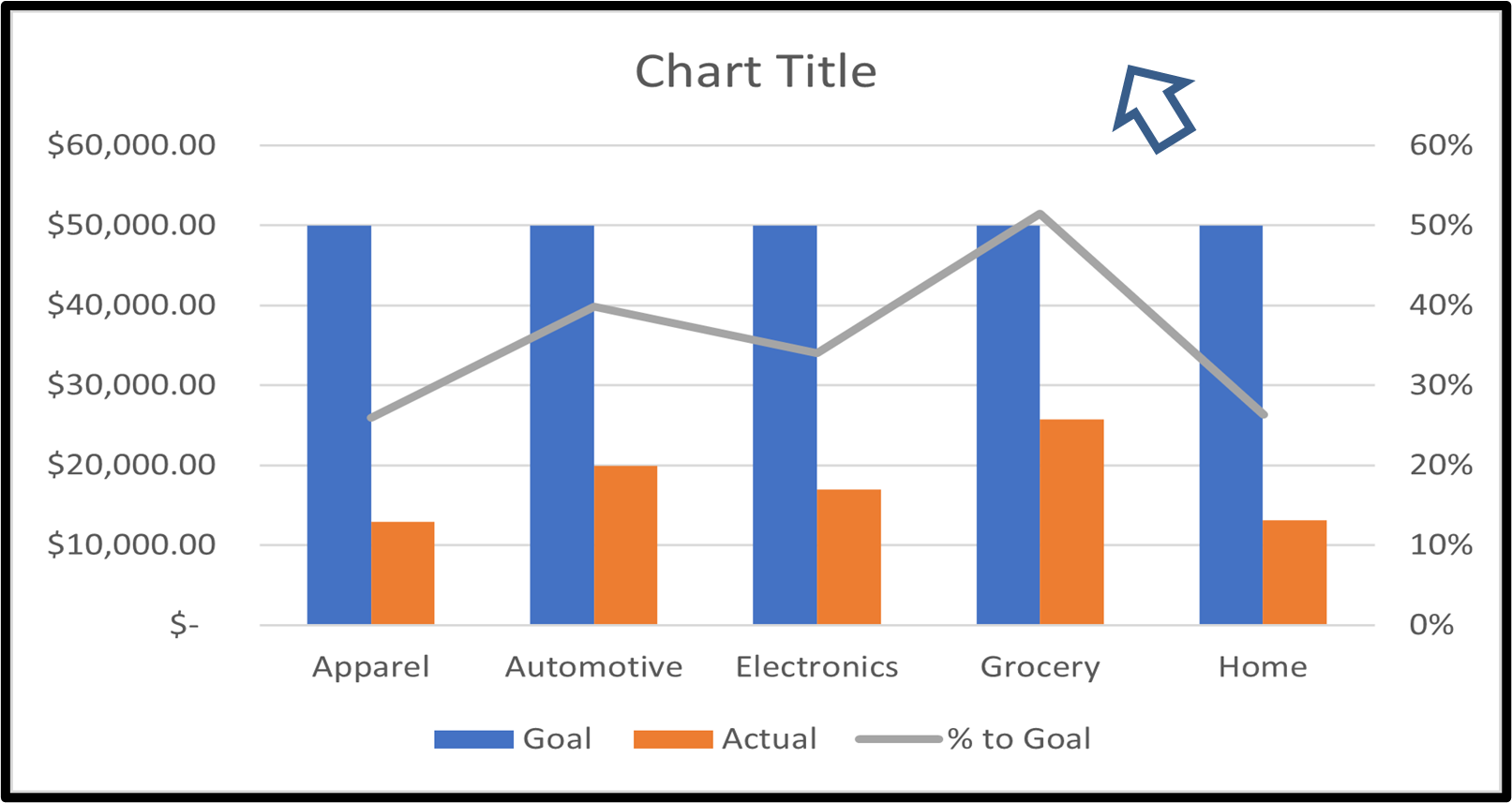
Step 2: Click on the Chart Filter button next to the chart
Once the chart name area is highlighted, you will see the Chart Filters button next to upper right-hand side of the chart. The button has the image of a funnel. Doing this will open the Chart Filters window.
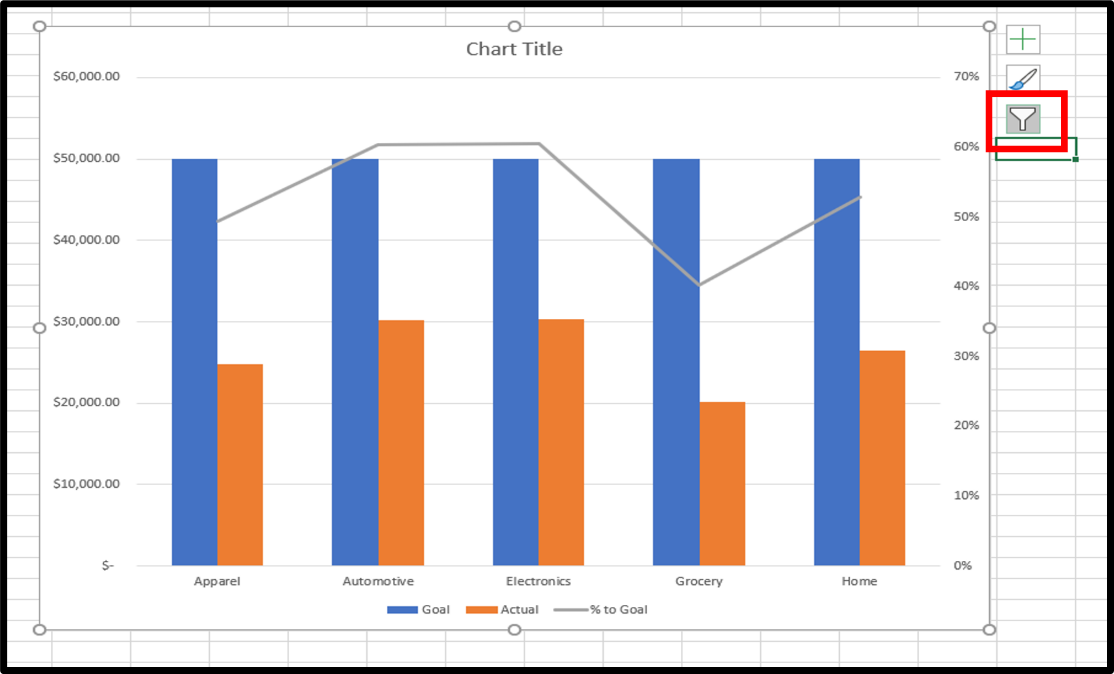
Step 3: Check the Chart Filters you would like to add from the Chart Filters window
Once you have opened the Chart Filters window, you will see a number of items you can select to add to your chart. Check the Chart Filters you would like to display and they will appear on your chart.
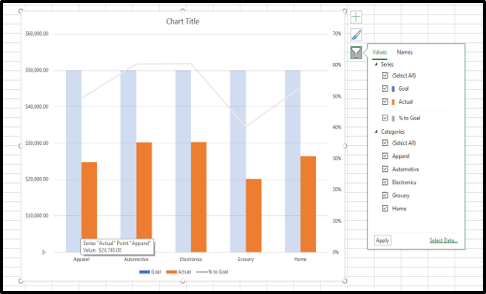
Topic #13
How to Make a Chart Or Graph in Excel
Thanks for checking out this tutorial. If you need additional help, you can check out some of our other free Excel Chart tutorials, or consider taking an Excel training class with one of our professional trainers.
Guide Topics
- How to Make a Chart or Graph in Excel
- How to Change the Chart Type in Excel
- How to Move and Resize Charts in Excel
- How to Change the Chart Style in Excel
- How to Add a Title to a Chart in Excel
- How to Add a Legend to a Chart in Excel
- How to Add and Remove Gridlines in Excel
- How to Add Axis Labels to a Chart in Excel
- How to Make Data Tables in Excel
- How to Filter Charts in Excel
- How to Make Trendlines in Excel Charts
- How to Make Dual Axis Charts in Excel
- How to Create Chart Templates in Excel
- How to Create Sparklines in Excel
- What Types of Chart Does Excel Offer?




